A sinking state and a leader who has managed to develop it despite the economic crisis happening all over the world. He only analyzed the reasons for the collapse of the Ottoman Empire very well; He focused on the economic factors that contributed to the collapse.
There is something that we should not miss in the policies he implemented that no matter how realistic the aims of a policy are, internal and external factors determine the chance of success. For this reason Ataturk’s economic policy In order to understand it, it is necessary to look at the economic situation of Republican Turkey.
The economy that the Republic took over had not changed at all, The Ottoman Empire was an agricultural society. In the first years of the Republic, the economy based on agriculture continued. That’s why Atatürk had to implement policies for agriculture, and that’s how it happened.
Production in agriculture took place in primitive ways.
The peasants consumed what they had grown in their fields themselves. Since there was no source to enable the products to reach the markets, the cities could only meet their food needs from the surrounding regions. The railroad is very bad, even the best of the highways worked only with oxcarts.
Almost all of the domestic and foreign trade was in the hands of minorities. This power obtained by foreign states prevented the establishment of industry in Anatolia. The industrial product requirements of the Turks were also met through imports. These too nuts, raisins, figs, tobacco as a limited number of agricultural products.
Atatürk had expressed his views on economic policy at the Izmir Economy Congress.
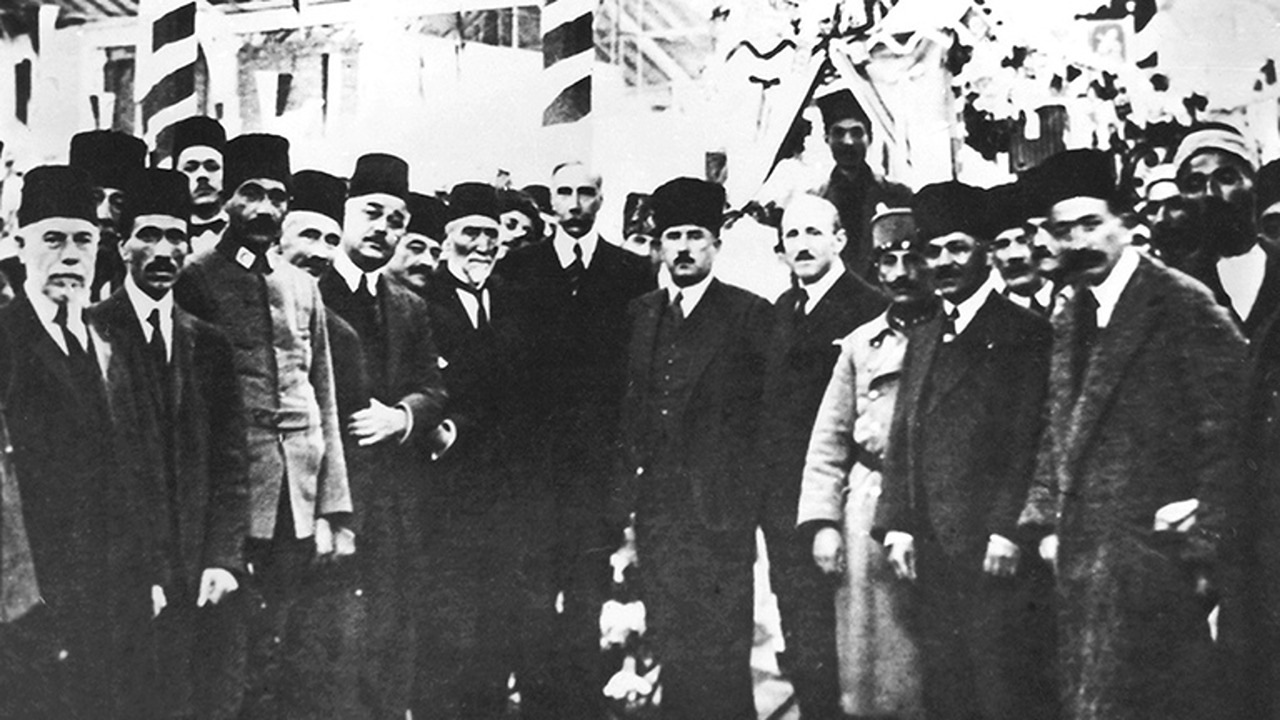
Atatürk’s speech on the economy at the opening of the congress was way ahead of its time, and it would be a great honor to convene such a congress before the Republic was even declared. foresight is the icon. (February 17, 1923)
Atatürk bases the economy on two concepts: nationality and full independence. It should be noted that although these principles have changed and shaped over time, they have never been compromised.
Atatürk expresses the importance of economy with the following words:
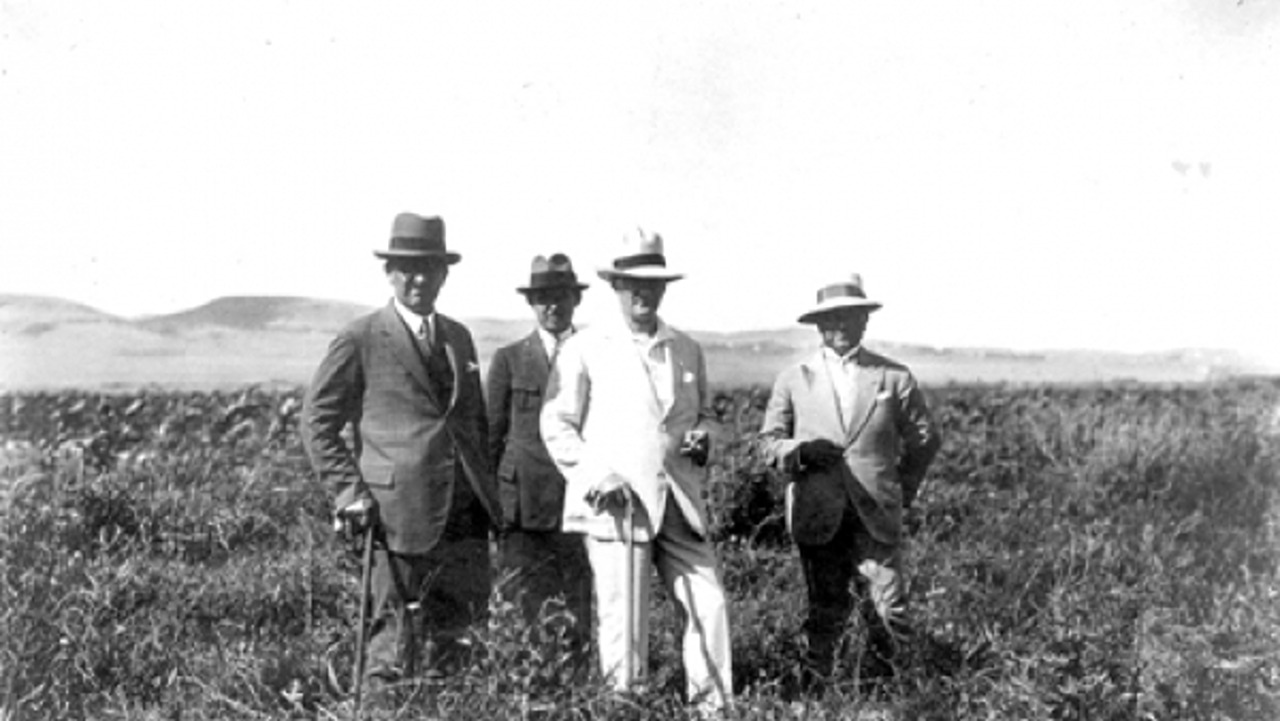
“What is directly related to the life of a nation is the economic situation of that nation. This truth, left over from the filter of history and experience, has fully manifested itself in our national life and national history. Indeed If the Turkish history is examined, it is immediately understood that the reasons for the decline and collapse are nothing but economic problems.“
The only reason why the economy is not given the necessary value is The Ottomans did not have a national government. says it is.
Atatürk thought that the nation should make the decisions in the economic field. Therefore, he considered it appropriate that the decisions to be taken at the Economics Congress should be taken by the people.
On this principle, representatives of the people from all provinces also attended the congress. Stating that there would be no talk of political independence without economic independence, Atatürk made the following sentences:There is the following principle for full independence: National Sovereignty. It should also be reinforced by economic dominance. Political and military victories, no matter how big, if they are not crowned with economic victories, the successes won’t survive and will fade in a short time.“
Atatürk, who concluded the War of Independence with victory, He thought he would prove this success in Lausanne.. However, he faced pressure from imperialist countries to continue their exploitation in the economy. These developments are very important in determining Atatürk’s economic policies.
Atatürk is trying to explain that the privileges imposed on the Ottoman Empire by the imperialists brought the country into a colonial state.
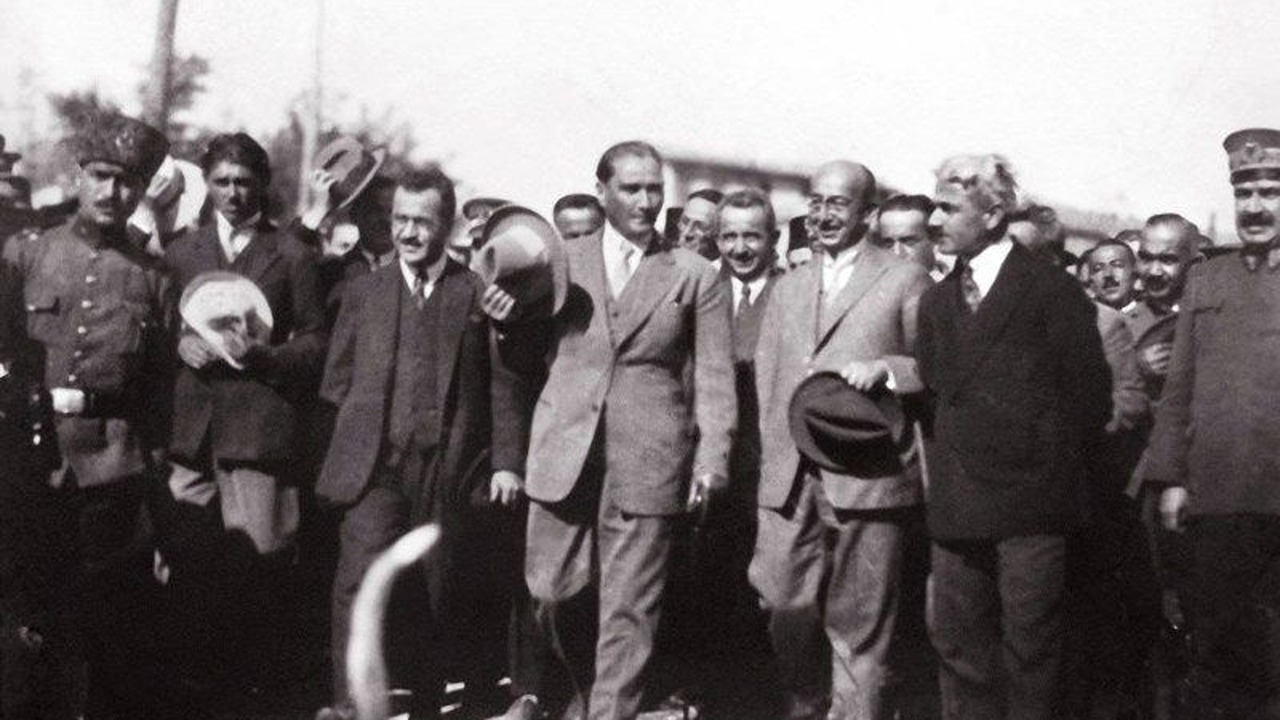
“A state that cannot impose tax on foreigners on its own nationals; a state that is deprived of the right to regulate its own customs duties and all kinds of taxation; a state which, according to its own laws, is incapable of exercising its jurisdiction over foreigners; that state cannot be called independent. The interference in the life of the state and the nation is even more than that. The state was not free in matters such as railway construction, for example building factories, which were among the economic needs of the nation. So when something was tried to be started, no matter what, strangers would get involved. Can a state incapable of sustaining itself be independent?
In the first years of the Republic, the priority given to private enterprise was replaced after 1932. statism policy took. The reason for this is the thought that the private enterprise, which does not have sufficient capital, cannot cope with this task alone.
The period between 1923 and 1932 was a period of policy pursuit that prioritized private enterprise.
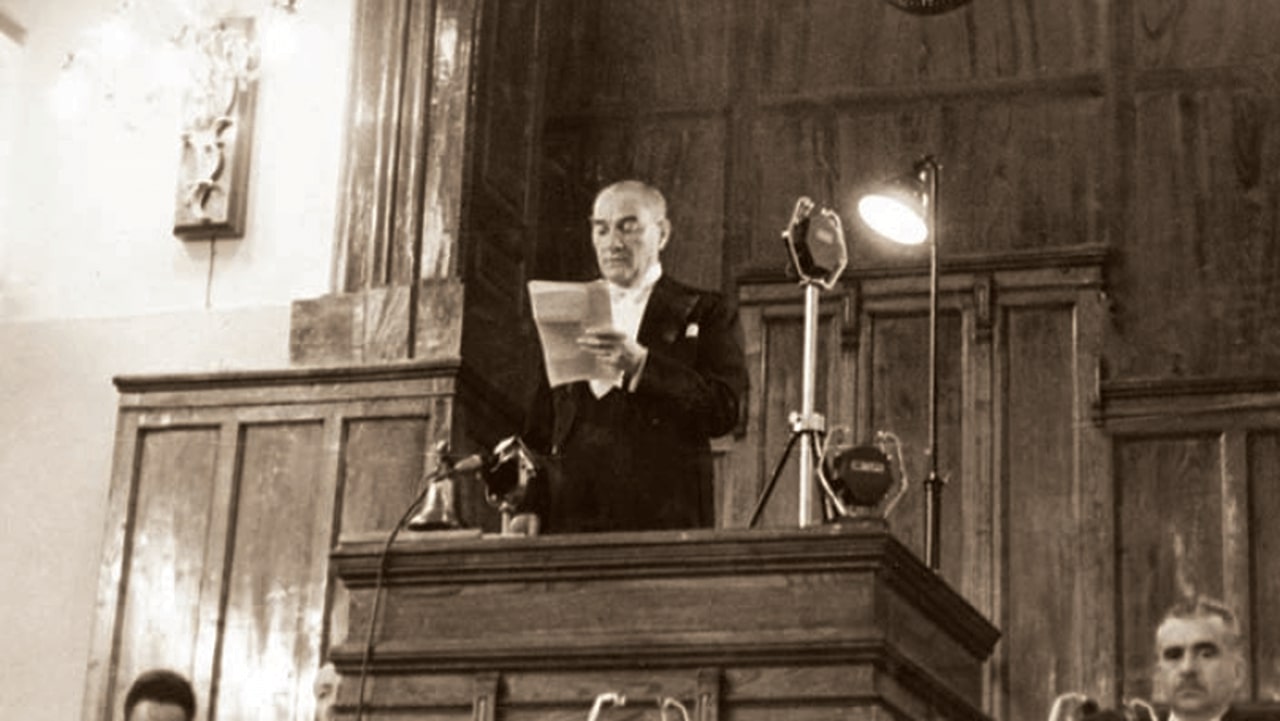
During this period, the state intervened in the economy. These interventions were aimed at distributing monopolies to privileged companies and accelerating private capital accumulation. In 1924, İşbank was established. However, the government showed its willingness to develop the domestic capitalist class. The Encouragement-i Industry Law enacted in 1927 provided wide protection and exemption opportunities for private domestic industry. In particular, this law has a very important role in the development of private industry. Monopolies and factories from 1915, Industry and factories established in 1925 Maadin Bank taken over by
The absence of a Central Bank in the country and the fact that the Ottoman Bank carried out all the transactions did not allow the state to follow monetary policy and establish control over it.
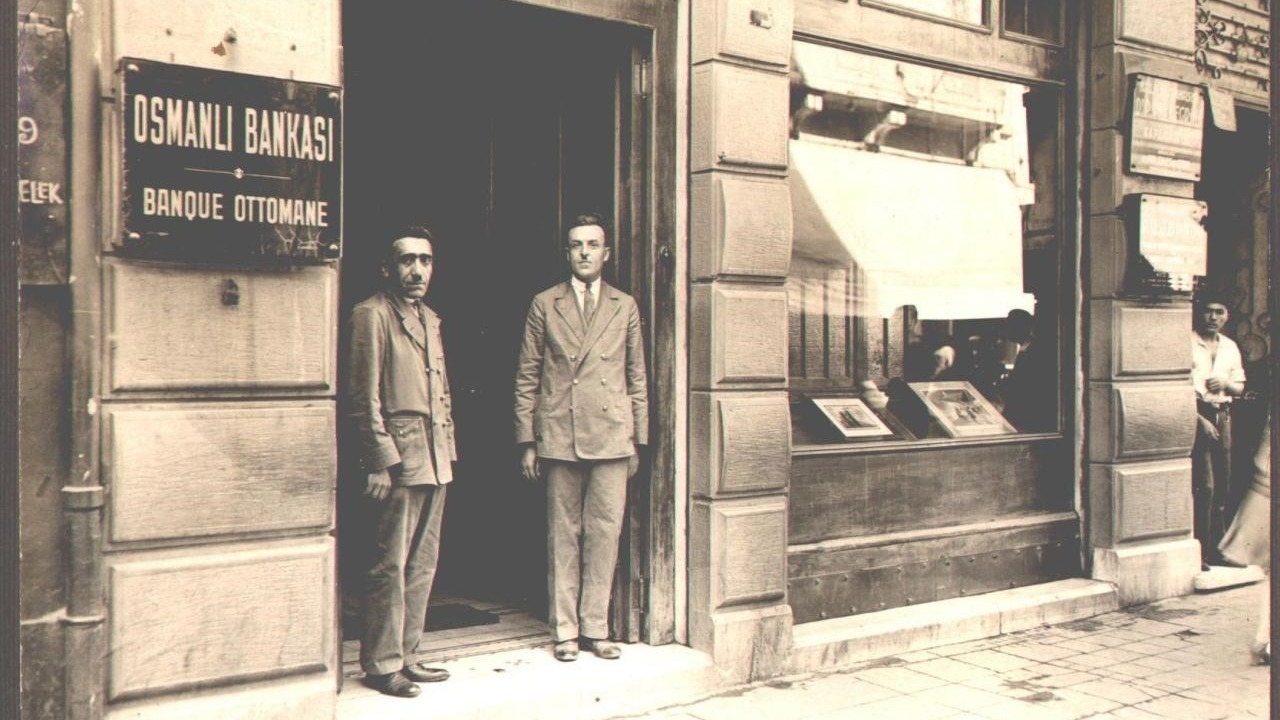
At the Izmir Economics Congress abolition of the tithe tax, which provides an important source of income to the state and deprived the state of an important income. Importers, meanwhile, made a large amount of imports and the deficit in the foreign trade balance, which had been in constant deficit since 1923, grew more and more. The Ottoman debts, which started to be paid, also worsened this situation. Thus, in 1929, a rapid decline in the external value of the Turkish lira took place. It started in the USA and spread to the world in the same year. Great Depression As a result, the world economy collapsed.
put into effect by Atatürk Commentary on “statism” is as follows: “The statism principle we are applying is not a system like communism or collectivism that takes all production and distribution opportunities from the individual, aims to manage all the issues of the nation, and does not allow private entrepreneurship and individual activity in the field of economy.“The great leader had a very rational and realistic approach. The descriptions show this too.
The 1929 crisis revealed what Turkey lacked: capital was scarce and insufficient. Therefore, the state should have invested itself instead of directing the economy. Ataturk did what was necessary.
To prevent the depreciation of the Turkish lira In 1930, the Law on the Protection of the Value of the Turkish Currency was enacted, In the same year, for the regulation of trade, the Law of Prohibition of Adulteration in Trade and Control and Protection of Exports was enacted. The Central Bank was established in 1930, and in 1933, Sümerbank’s founding law was enacted to provide projects and financing for the industry to be established by the state.
On April 20, 1931, Mustafa Kemal Atatürk, who formed the basis of the Republican policies, He also proclaimed 6 principles: republicanism, nationalism, populism, secularism, statism, and revolutionism. Shortly after the declaration of these principles, he brought up the economic policy based on statism. The aim of this policy was planned industrialization.
With the Five-Year Industrial Plan, Turkey was the first country among developing countries to engage in planned development.
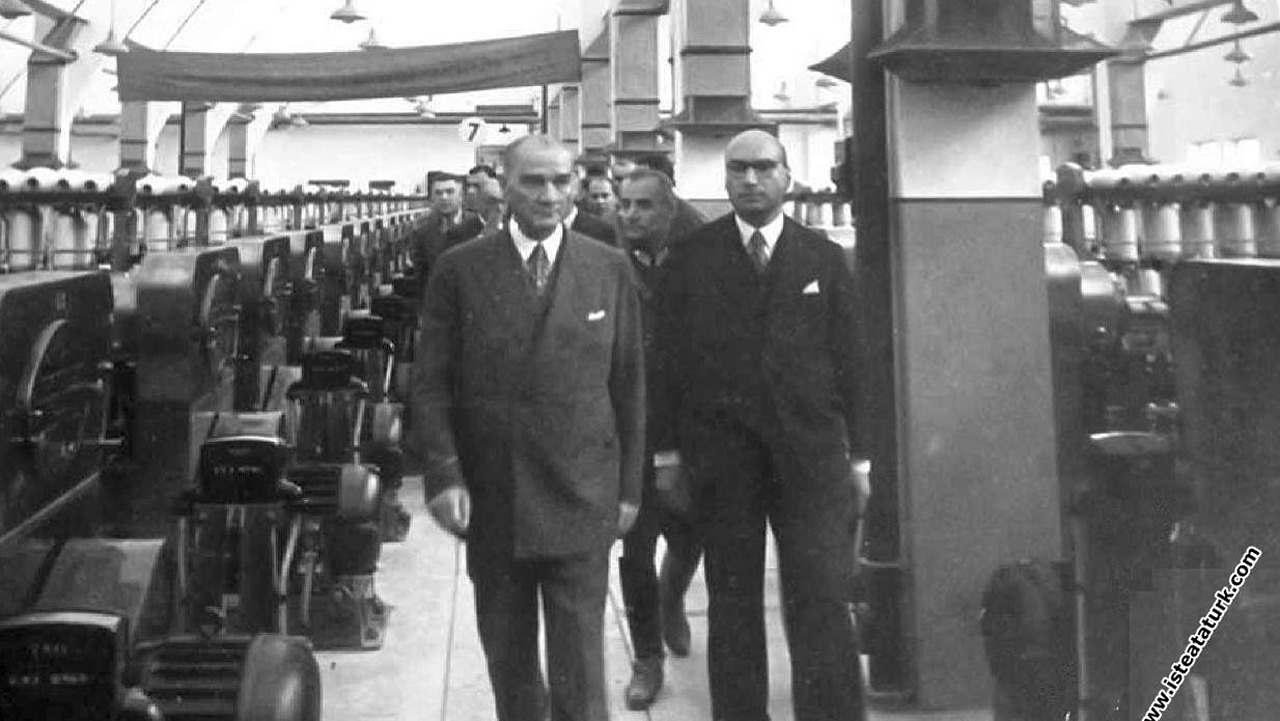
in May 1932 An interest-free, 20-year loan agreement of $8 million was signed with the Soviet Union. This is the first debt for Turkey and there has been no further debt in 25 years after that. This loan was also to be used for Soviet material for sugar and weaving factories. Sümerbank undertook the project and financing of the plan. In fact, this plan envisions processing domestic products; Production of 6 sub-industry groups was also targeted (chemistry, paper-cellulose, mining, textile, ceramics, iron-steel).
While the implementation of the First Industrial Plan continues In 1936, with the instruction of Atatürk, the second industrial plan was made. preparations had begun. However, II. With the World War II, the plan changed a little: It was passed to the “Economic Defense Plan”. The Statism policy initiated by Atatürk gradually lost its effect and this policy was abandoned after 1945.
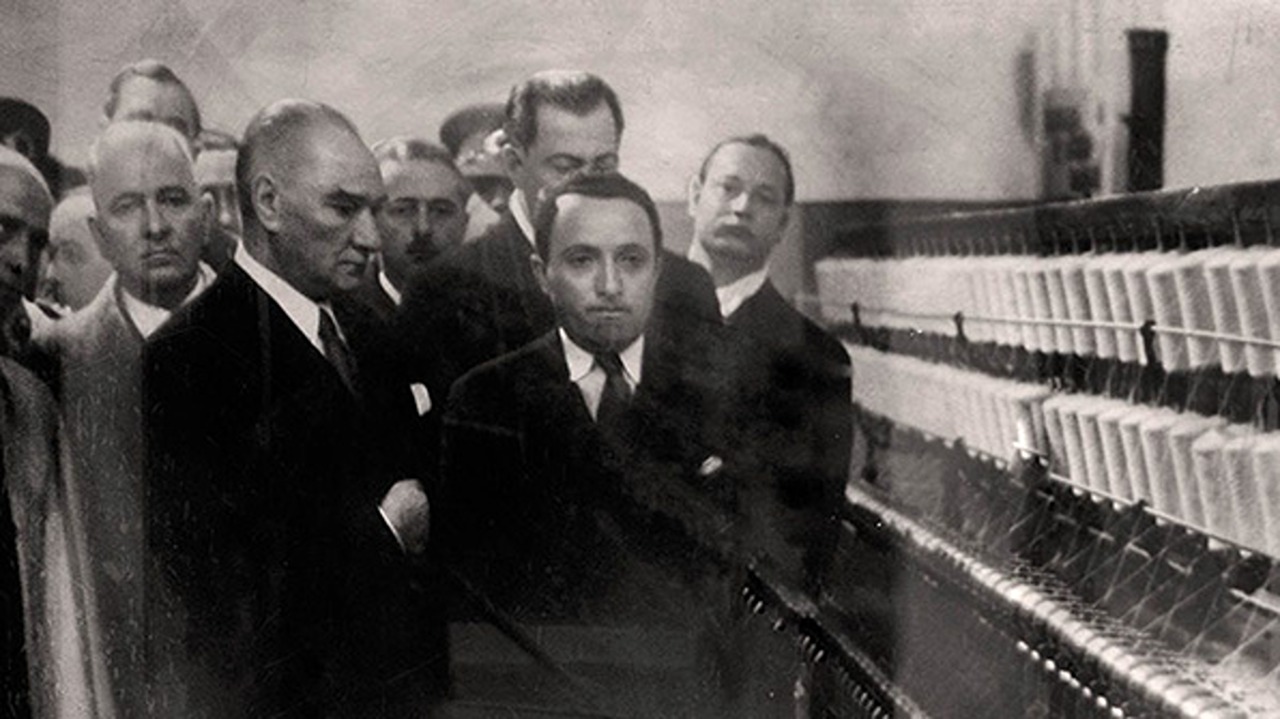
The success of the practices that Atatürk created out of nothing with his smart moves and that saved the state, which was stuck in the debt swamp inherited by the Ottoman Empire, from a global crisis is obvious. While the whole world was in a depression as a result of the economic crisis in 1929, Türkiye embarked on a national industrialization move in the 1930s.Before long, it achieved an annual average growth of 3.5%, and between 1933 and 1939 it was 8.1%. He closed the trade balance deficit and nationalized the railways by liquidating the privileged foreign companies that had been going on since the Ottoman Empire. Banks such as Sümerbank, Etibank and Denizcilik Bank, which have a great place in our economy, were established and the basis of the Turkish industry was developed as much as possible.
Whole world with the economic crisis While he was fighting, Atatürk is a great leader and political genius who helped Turkey develop into an industrializing society.
RELATED NEWS
What kind of path did Mustafa Kemal Atatürk follow in the Erzurum Earthquake in the 1st Year of the Republic?
RELATED NEWS
Every Step is a Lesson: What Happened in Turkey’s First General Elections, in which Atatürk was also a candidate?
RELATED NEWS
The Father of Geology: İhsan Ketin, who was educated under Atatürk’s instruction and thus discovered the North Anatolian Fault Line
RELATED NEWS
